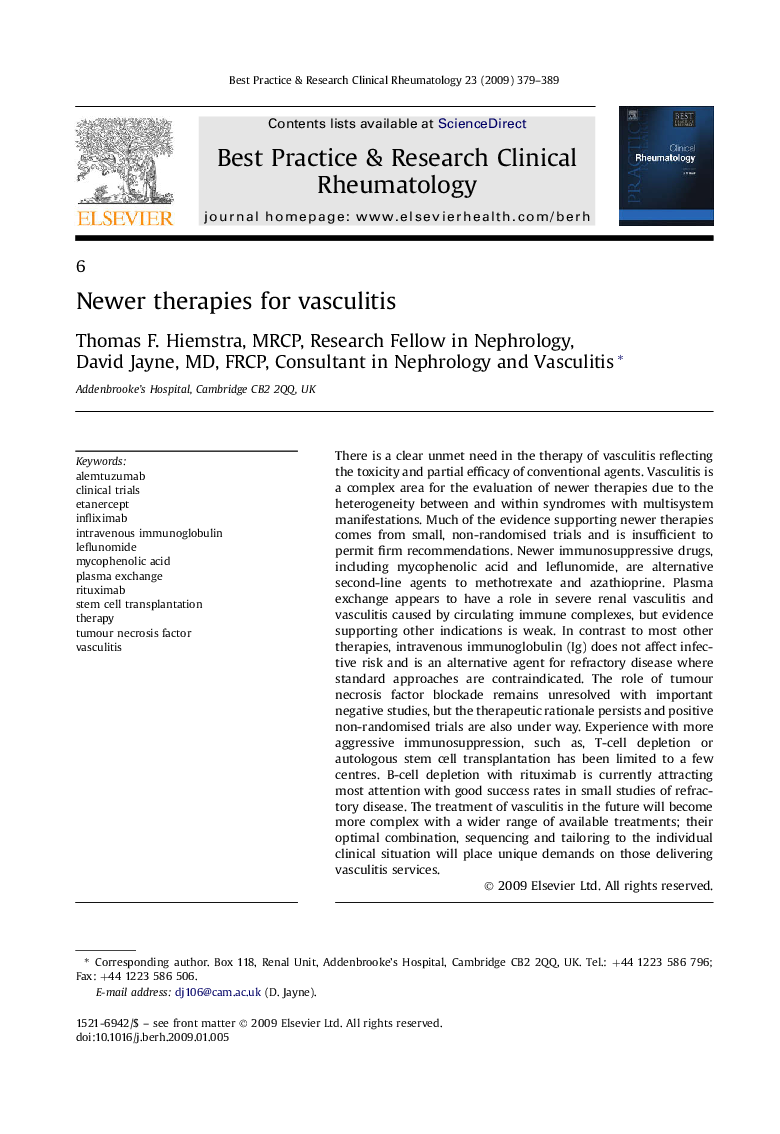| Article ID | Journal | Published Year | Pages | File Type |
|---|---|---|---|---|
| 3343482 | Best Practice & Research Clinical Rheumatology | 2009 | 11 Pages |
There is a clear unmet need in the therapy of vasculitis reflecting the toxicity and partial efficacy of conventional agents. Vasculitis is a complex area for the evaluation of newer therapies due to the heterogeneity between and within syndromes with multisystem manifestations. Much of the evidence supporting newer therapies comes from small, non-randomised trials and is insufficient to permit firm recommendations. Newer immunosuppressive drugs, including mycophenolic acid and leflunomide, are alternative second-line agents to methotrexate and azathioprine. Plasma exchange appears to have a role in severe renal vasculitis and vasculitis caused by circulating immune complexes, but evidence supporting other indications is weak. In contrast to most other therapies, intravenous immunoglobulin (Ig) does not affect infective risk and is an alternative agent for refractory disease where standard approaches are contraindicated. The role of tumour necrosis factor blockade remains unresolved with important negative studies, but the therapeutic rationale persists and positive non-randomised trials are also under way. Experience with more aggressive immunosuppression, such as, T-cell depletion or autologous stem cell transplantation has been limited to a few centres. B-cell depletion with rituximab is currently attracting most attention with good success rates in small studies of refractory disease. The treatment of vasculitis in the future will become more complex with a wider range of available treatments; their optimal combination, sequencing and tailoring to the individual clinical situation will place unique demands on those delivering vasculitis services.
